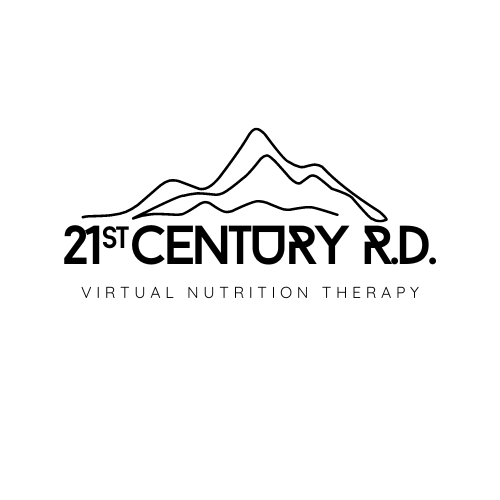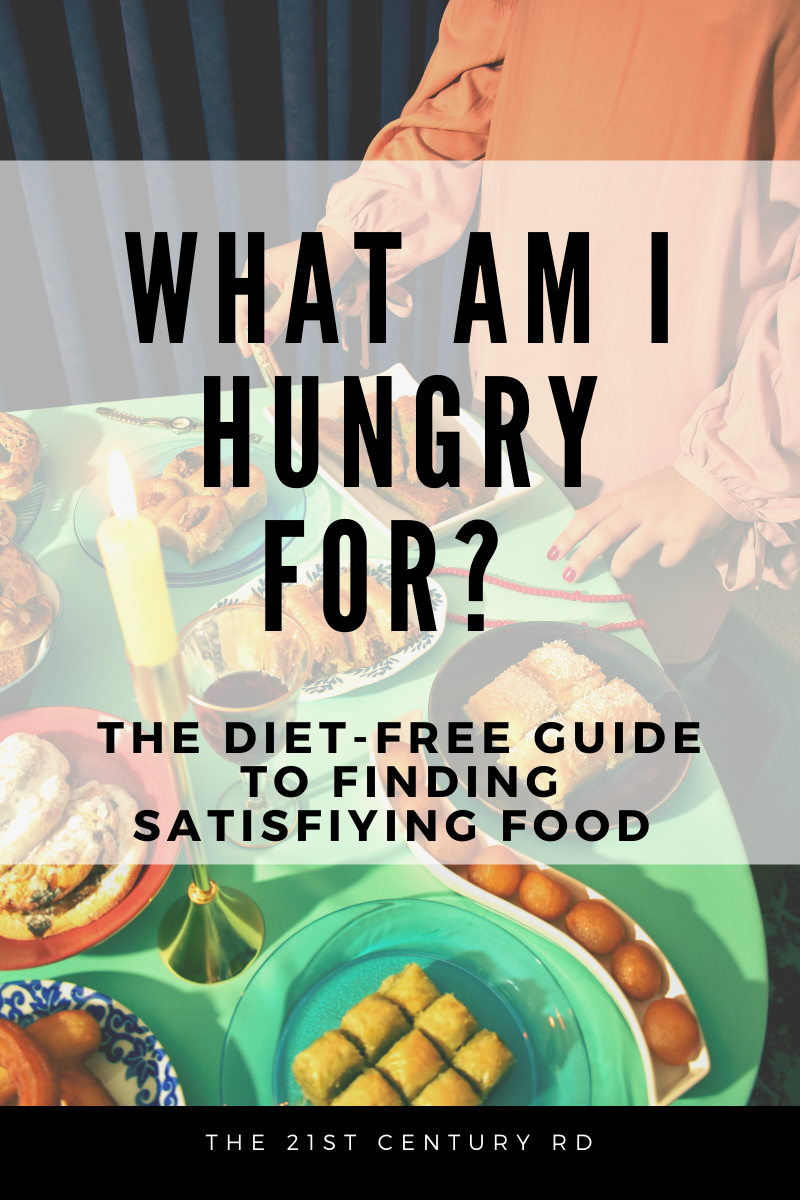The Academy of Nutrition and Dietetics Doesn't Wash Their Hands
Have you ever heard of Semmelweis? No, it’s not the flour you use to make pasta.
Semmelweis was the first doctor who proposed that hand-washing between delivering babies and dissecting cadavers could save lives. Seems like a no-brainer today, but at the time his fellow health professionals laughed him out of the medical profession. Doctors could not possibly be the cause of the high death rates for women delivering children!
Semmelweis’s story is tragic. He never knew how influential his work would eventually become. He began drinking heavily, suffered from depression, and other mental illnesses to eventually die from an infected wound in a mental hospital. Pretty bleak I know…
Today I am thinking of the first person to recognize germ theory, not because of his radical (at the time) idea, but how wildly frustrated he must have been. I (and many, many other dietitians in the non-diet space) are feeling wildly frustrated too. Not because doctors are refusing to believe they could be responsible for the high death rates of childbearing women in the 19th century, but we are frustrated by the latest problematic Evidence-Based Nutrition Practice Guidelines developed by the Academy of Nutrition and Dietetics (AND).
And as I’m writing this, I just realized it is Registered Dietitian Day! How fitting!
It is not a new concept that calorie deprivation is ineffective at long-term weight loss for the vast majority of people. The statistic thrown around varies but somewhere between 80-97% of dieters regain lost weight within 5 years of starting a diet.
It is not a new concept that using weight loss as a health marker is problematic by further perpetuating weight stigma, encouraging disordered eating behaviors, and enforcing the use of a faulty measurement tool BMI (Body Mass Index). BMI, I will remind you, was never intended to measure individuals’ health but as a statistical tool to look at populations. Not to mention the BMI’s racist roots. Yet, AND recently released clinical practice guidelines that perpetuate more of the same weight-stigmatizing, ineffective recommendations for adult overwe*ght and obes*ty treatment.
To be clear, this is not surprising. AND has been attempting to ignore and discredit non-diet and HAES® approaches, because to acknowledge their legitimacy would mean a complete upheaval of the core principles of the Academy.
Debunking the bullshit:
I will be reviewing a few of the guidelines that really grind my gears. If you would like to read them all you can find the link here. Please note: there is weight-stigmatizing language and calorie recommendations. If those would be triggering for you, please skip it.
1.1 Suggests that “medical nutrition therapy is recommended for adults with overwe*ght or obes*ty to improve BMI, percent weight loss, waist circumference, blood pressure, and quality of life.”
Notice the pathologizing use of those “o” words? Instead of using them as a descriptor of size, they are being used to infer disease thereby perpetuating anti-fat bias. Not only that but 3 out of 5 of the measures (BMI, percent weight loss, and waist circumference) do not provide an accurate picture of one’s health, just the size, and shape of one’s body. This other simplification of health is harmful to all bodies. A large study reviewing NHANES data found that “nearly half of overwe*ght individuals, 29% of ob*se individuals, and even 16% of obes*ty type 2/3 individuals were metabolically healthy. Moreover, over 30% of “normal-weight” individuals were cardiometabolically unhealthy.“ Kilograms over metered squared is just not cutting it.
4.1- 4.5 (I am paraphrasing) Suggest using calorie reduction methods as a means of intervention.
I do not want to share the actual numbers that are suggested, as they are literally recommending disordered eating behaviors. Reduced calorie diets, like what AND is recommending, have been linked to weight cycling and the development of eating disorders. Weight cycling (the repeated loss and regaining of weight) is not mentioned in these recommendations but is an independent risk factor for the very same conditions blamed on higher body weights like inflammation, diabetes, hyperlipidemia, etc.
4.6 Oh, good old 4.6! “For adults with overwe*ght or obes*ty, it is suggested that RDS or international equivalents not use a Health at Every Size or Non-Diet approach to improve BMI and other cardiometabolic outcomes or quality of life.”
This is the first time I have seen HAES® and non-diet approaches specifically named and discouraged by the Academy. The HAES® paradigm was never intended to “improve BMI.” HAES® takes a weight-neutral approach to health and focuses on behaviors. And WEIGHT IS NOT A BEHAVIOR. ASDA (Association of Size Diversity and Health) has written an open letter describing this and other concerns with recommendation 4.6.
To say HAES® and Non-Diet approaches should not be used to improve cardiometabolic outcomes or quality of life makes me question what research was evaluated to make this claim? The non-diet approach has been shown to produce positive changes in health markers when compared to control groups receiving weight-centric care. These health markers include improved blood pressure, a decrease in binge eating behaviors, an increase in physical activity, and improved body image.
A further frustration is that because I am no longer a member of the Academy of Nutrition and Dietetics, I do not have access to the systemic review, of which they made these recommendations. Feels like gatekeeping to me! I have learned from Clara N. (@yourdietitianBFF — a must-follow on IG) that one of the funders for the research used to create these recommendations was Weight Watchers…talk about research bias!
This serves as a great reminder that research has flaws, especially when it comes to analyzing human health and behavior. Research costs tons and tons of money, and the people who fund research typically have something to gain from it. While HAES® guidelines have a social justice, compassion-centered, ethical approach to wellness, they don't quite have the same appeal to large money-hungry corporations that make profits on weight cycling and body dissatisfaction. We do need more research around HAES®and non-diet approaches! But we also can’t analyze HAES® for its effectiveness for weight loss when that was never the f*cking point!
To any students, dietetic interns, or folks new to the non-diet or HAES® space, do not panic because of these guidelines. I would give up my RD credential before giving up a weight-neutral approach. I, like many others, have seen first-hand the harm of weight-centric recommendations like the ones suggested by AND, and have NO plans to go back. These recommendations are just (bad) suggestions. Meant for those who “treat” overwe*ght and obes*ty, and those following a HAES® approach do not treat body size. So please do not let these recommendations stop you from delivering person-focused, weight-inclusive care.
To the dietitians practicing with a non-diet approach who are still members of AND, working to create change within the system, YOU ARE ROCKSTARS. I hope to join your fight once I have the mental capacity to do so.
To the folks that these recommendations are intended to “treat”, I am deeply sorry that we got it wrong, AGAIN. I want to recognize that the unearned privileges that I hold as a white, cisgender, able-bodied, straight-sized human can make this message more palatable- which is a problem. We can do so much better.
If HAES® and/or the non-diet approach resonate with you, I encourage you to let the Academy of Nutrition and Dietetics hear your thoughts.
The recommendations are up for public review (you don’t need to be a dietitian), and while I do not have high hopes that AND will change these guidelines, I do think they at least are realizing the passion and growing force behind the non-diet community.
Maybe next time they conduct this kind of research they will actually include dietitians in the non-diet space? Wouldn’t that be something!
Besides his contributions to medicine, Semmelweis’s experience coined the term Semmelweis Reflex-
“the human behavioral tendency to stick to preexisting beliefs and to reject new ideas that contradict them despite adequate evidence.”
If nothing else, there is comfort in knowing you are on the right side of history. I will continue to wash my hands and practice nutrition in a way that makes me (and my clients) feel good.
I urge you to take a few minutes to fill out the survey. Let your thoughts be known! What better way to celebrate Registered Dietitian Day?! The deadline is March 25th, 2022.
Looking for more information about Health At Every Size?
https://asdah.org/health-at-every-size-haes-approach/
Going on a deep HAES® dive? Here are some additional research papers showing the benefits of this approach:
· https://pubmed.ncbi.nlm.nih.gov/27289009/
· https://nutritionj.biomedcentral.com/articles/10.1186/1475-2891-10-9



